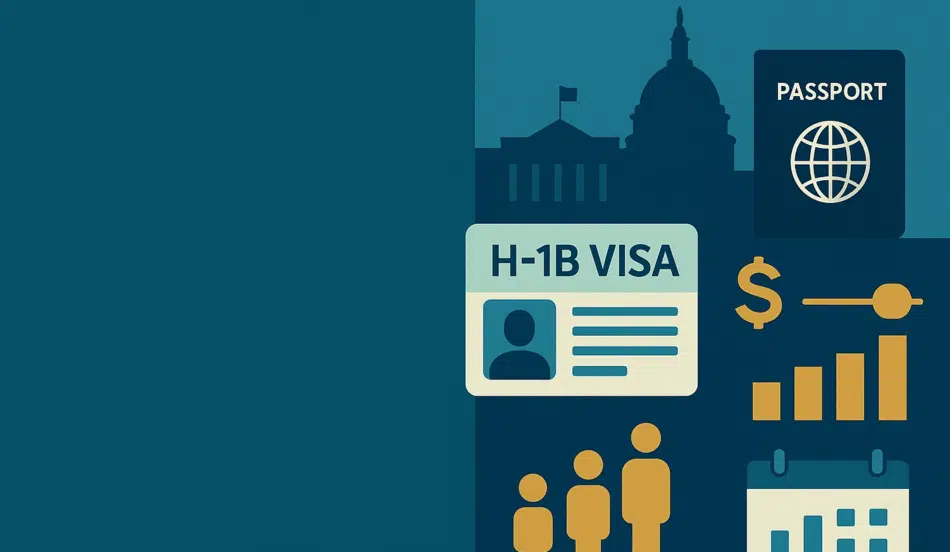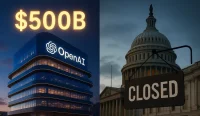The White House has given the green light to a proposal that could overhaul the way H-1B visas are allocated, replacing the long-standing lottery system with a salary-based selection process. While details of the regulation have yet to be released, immigration experts say the move could dramatically reshape the U.S. high-skilled immigration landscape—if it survives legal challenges.
From Lottery to Salary-Based Selection
Currently, the H-1B program allocates 85,000 visas annually through a randomized lottery when applications exceed the cap, which they typically do within days. Under the new proposal, the U.S. Department of Homeland Security would rank applications based on the wages offered, awarding visas first to the highest-paying jobs.
The approach aims to favor companies offering “level four” wages—the highest tier in the Department of Labor’s prevailing wage system—although the precise salary thresholds remain unknown. If implemented, this could give a significant edge to tech giants and multinational corporations while disadvantaging startups, universities, and research institutions that typically pay lower salaries.
“This is essentially a first-come, first-served system for the highest salaries,” explained Silicon Valley immigration attorney Samir, who notes the change could all but eliminate the randomness of the current lottery.
A Second Attempt at Reform
This isn’t the first time a salary-based allocation has been attempted. A similar rule under the previous administration was struck down in court for procedural flaws. According to Samir, the new proposal is designed to be “more lawsuit-proof” by following the formal regulatory process:
- White House Approval – The Office of Information and Regulatory Affairs has cleared the rule for publication.
- Public Comment Period – Once published, the rule will undergo a 60-day public comment period, open to individuals, universities, law firms, and industry groups.
- Final Rule – After reviewing (and possibly incorporating) comments, the agency will publish the final regulation, which could take effect in time for the 2026 H-1B filing season.
While the process is designed to withstand legal scrutiny, Samir expects lawsuits challenging whether the executive branch has the authority to fundamentally alter the selection criteria without congressional approval.
Hire Global Talent with Confidence
Post your job on WhatJobs today—stand out to top talent even as H-1B rules shift toward higher wages.
Post a Job Now →Potential Impact on Employers
If the rule is finalized, the biggest winners are likely to be large corporations capable of paying premium salaries, especially in the tech sector. The losers could be early-stage startups, nonprofits, and universities that rely on H-1B talent but operate within tighter salary budgets.
“Startups don’t pay at the top of the wage scale. Universities don’t either,” said Samir. “If only the highest salaries get H-1Bs, you could see entire categories of employers shut out of the program.”
The shift could also affect the diversity of industries able to hire foreign talent, concentrating visas in a small number of sectors.
Legal and Political Outlook
The political backdrop could influence how the rule is received and implemented. While the executive branch controls the regulatory process, legal challenges could delay or block the changes entirely. Courts will have to decide whether replacing a congressionally recognized lottery with a salary-ranking system exceeds executive authority.
For now, employers and prospective H-1B applicants are in a holding pattern, waiting for the text of the proposed regulation to be published in the Federal Register.
FAQs
1. What is the main change being proposed for the H-1B visa process?
The White House-backed proposal would replace the random lottery system with a ranking system based on the wages offered to the applicant, prioritizing higher-paying jobs.
2. When would the new H-1B salary rule take effect?
If finalized without legal delays, the rule could be in place for the 2026 H-1B filing season. However, the timeline depends on the regulatory process and any court challenges.
3. Who benefits most from the proposed change?
Large corporations, particularly in the tech sector, that can pay at or above the highest prevailing wage levels would have a significant advantage in securing H-1B visas.
4. Who could be negatively affected?
Startups, universities, research institutions, and nonprofits that typically offer lower salaries may struggle to compete for H-1B visas under a salary-based allocation system.




